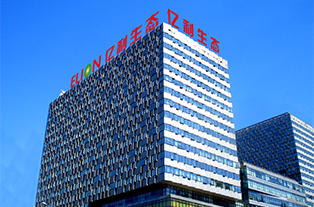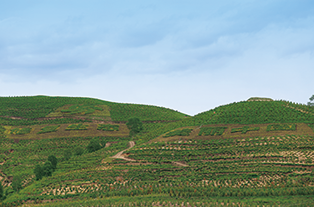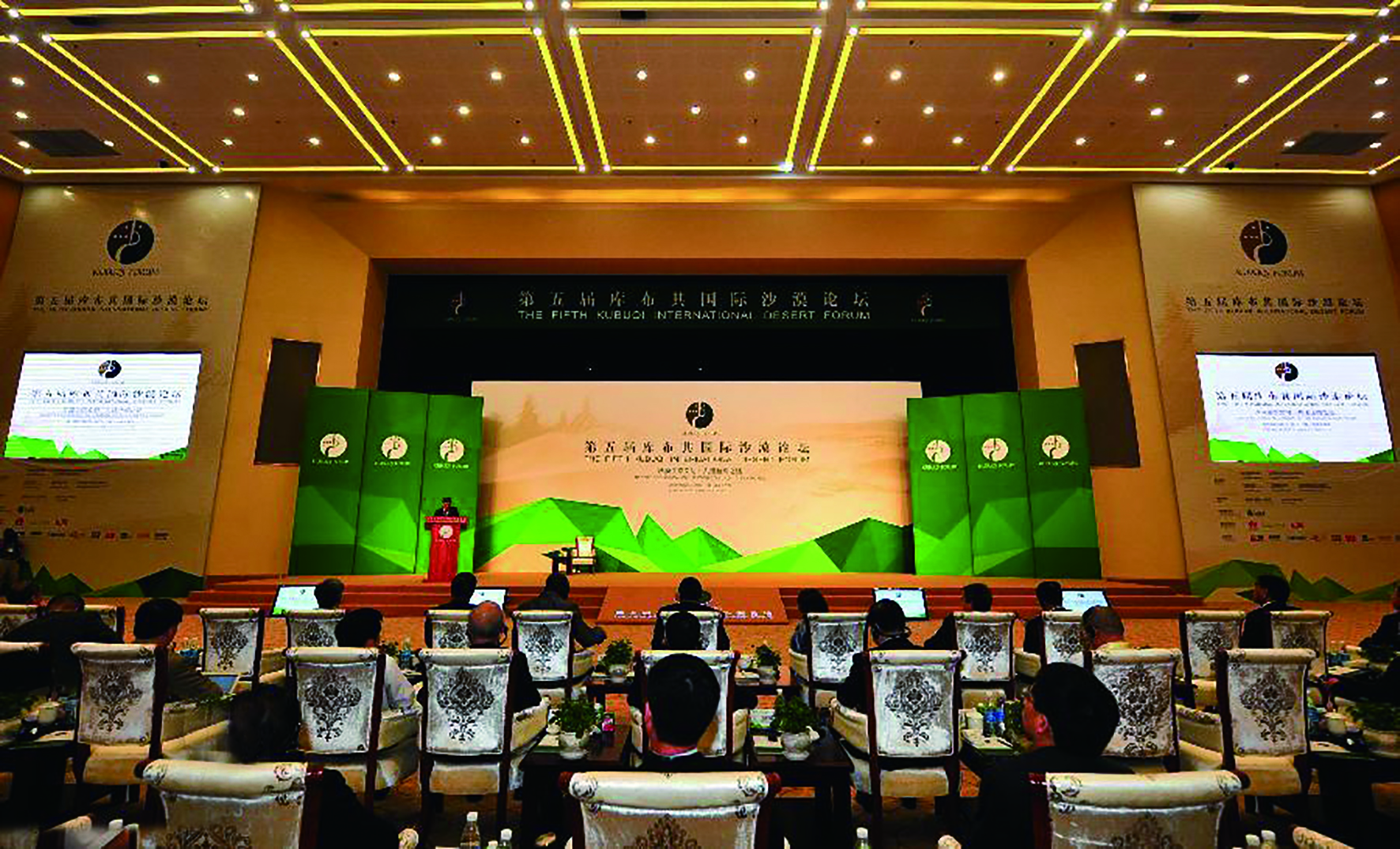Distinguished Madam Dechen Tsering, distinguished Dean XUE Lan, distinguished Mr. Zhang Shigang, faculty and students of Tsinghua University.
The Belt and Road Initiative proposed by President Xi Jinping is exerting huge influences on the whole world, esp., the dozens of countries and regions along the Silk Road Economic Belt and the 21st Century Maritime Silk Road (the Belt and Road in short), as well as the welfare of the billions of people along the rout. Executive Director Erik Solheim and I, along with many participants present, attended the opening ceremony of “Belt and Road Forum for International Cooperation” and the High-level Dialogue held yesterday. We listened to the keynote speech by President Xi and the speeches by leaders of state and government of many countries. We were very inspired and excited. We felt the huge responsibility and glorious mission on our shoulders when President Xi talked about in his speech the concept of green development, the strengthening of international cooperation in ecological protection, the cultivation of ecological civilization, the joint effort to achieve the UN 2030 Agenda for Sustainable Development, and in particular, his support for the UNEP initiative to establish the International Coalition for Green Development on the “Belt and Road” .

We notice that UNEP and China signed a Memorandum of Understanding (MoU) on cooperation on the Belt and Road Initiative last year, showing UNEP’s care about and support for the green development on Belt and Road proposed by China. We admire MR. Erik Solheim, who was the Norwegian Minister of Environment and Development before taking the office of Executive Director UNEP, for his unfailing high concern about environmental protection for humans. Today, the joint initiative of UNEP and China to establish the International Coalition for Green Development on the “Belt and Road”, as a proactive response to President Xi’s Belt and Road Initiative, comes at a right time with far-reaching significance.
China Elion Resources Group, as a global ecological pioneer and a leading green enterprise in desert control, will pursue a high presence in the International Coalition for Green Development on the “Belt and Road” and continue to play our positive role in desert control, ecological remediation and big data for ecological and environmental protection etc. Elion Group will invest 100 billion Yuan in the next three to five years in countries and regions along the Belt and Road on ecological and environmental protection, ecosystem restoration, eco-tourism towns, among many others, to boost the cause of green development on Belt and Road.
Desertification is known as the cancer of the earth, an ill too stubborn. In the over 60 countries and regions along the Belt and Road, more than one billion people suffer from desert, desertification and sandstorm. Where there is serious desertification, there is severe poverty, fragile ecosystem, low precipitation, deteriorated biodiversity and ferocious sandstorm.

Lying 800 kilometers due west of Beijing, Kabuqi Desert, if traced back to 30 years ago, would be a vivid portrait of today’s Iran, Egypt and Sahara deserts. Therefore, the control of desertification and the ecosystem restoration are two integrated parts in the green development on Belt and Road. They are heavy tasks and responsibilities for countries and regions along the rout and for China just as well.
Face desert. Know Desert. Study desert. As global concern on desert is far from enough, it is necessary to face up to deserts, know them better and draw their benefits. We should avoid their harms but not by running away. Elion’s 30 years in desertification control is the best illustration. I was born in the desert area. As a child of desert, I know this place too well. When I was still a kid, the desert was swept by dry sand all over, with no plants and little rain. Extreme hunger was my memory of childhood. However, this kind of phenomenon abounds in countries and regions along the rout. 30 years ago, local people built temples and prayed to the Heaven for rain. But their pray was never answered. The disastrous situations could only be reversed by humans. I was assigned to lead a company in desert area in 1988 when I was 28 years old. After 30 years of hard work, we have controlled effectively more than 18,600 Square kilometers of desert, an area twice the size of Tianjin City. The increasing precipitation brings benefits and happiness to locals. Right here, right now, I am inviting all the friends present, all the teachers and students of Tsinghua University, to witness with your own eyes the glamour of Kabuqi desert, a proud name card of China.
Ten days ago, a strong sandstorm hit China. With inked sky for more than 40 hours on end, the whole Beijing City was actually breathing sand in and out. Experts found later that the sandstorm originated from central and southern Mongolia and the western desert area of China. However, in those few days, Kabuqi Desert enjoyed its unique tranquil beautiful scenery with birds chirping happily and flowers in full bloom. If you have never been to Kabuqi, you might think I am fabricating facts with something impossible. Just a few days ago, the Poverty Reduction Survey Work Group of CPPCC paid a visit to Kabuqi. After two days of investigation, an expert said three “I have never thought”. Here I quote, “I have never thought the Kabuqi Desert area under control is so large. I have never thought the control of Kabuqi Desert is so effective and efficient. I have never thought the locals in desert area have enjoyed so many benefits.”

By drawing our 30 years of control and treatment of desert, we have already drawn an experience for the development of desert economy, that is, three “adheres”. Firstly, we adhere to the three combinations: the combination of generating wealth with green development, the combination of corporate development with ecological management, the combination of ecosystem with industry. As illustrated by our 30 years of experience, the three combinations are very important. Secondly, we adhere to a “four-wheel drive” development mechanism which includes the preferential policies from government, the business investment from corporate community, the market-based participation from farmers and herdsmen, the continuous improvement of ecosystem. This “four-wheel drive” development mechanism has universal applicability. It can secure firmly the management of ecosystem and the sustainable development. Thirdly, we adhere to scientific innovation.
Several months ago, Mr. Zhang Shigang of UNEP and I proposed the initiative of establishing “International Development Coalition for Desert Green Economy”, which was highly valued by UNEP. I also advocated my proposal in National Development and Reform Commission, State Forestry Administration and Ministry of Environmental Protection. Yesterday, we were overjoyed to see that with the promotion of UNEP, President Xi Jinping supported and affirmed in his keynote speech the establishment of International Coalition for Green Development on Belt and Road. This is a decision of great significance in the process of building green “Belt and Road”, as this coalition is so important for the BRI process. We will also contribute our humble efforts to the establishment and development of the Coalition.
To give full play to the role of the Coalition, I have three suggestions as follows:
Firstly, I suggest that UNEP, UNCCD, China’s competent authorities and Elion work together to establish, under the framework of International Coalition for Green Development, the International Coalition for Desert Green Economy on Belt and Road so as to provide technical assistance, experience exchange, desert culture interaction and sharing to countries and regions along the Belt and Road, with emphases to be laid on the control of desert and the development of desert economy.
Secondly, I suggest that we make full use of the Kabuqi International Desert Forum as a platform to disseminate China’s successful experience in controlling deserts to countries and regions along the Belt and Road with the support of UNEP and UNCCD. Kabuqi Forum was a large international forum approved by the central government, the first of its kind to be held in deserts. On July 28th, 2017, the 6th Kabuqi Forum will be held for three days with participants from political, scientific and business communities from more than 30 countries. Over the past 10 years, the Kabuqi Forum has been gaining increasing international fame and influence. In fact, Kabuqi Forum has been written into a UNGA resolution to be an important platform and mechanism for UNCCD and UN 2030 Agenda for Sustainable Development. Under the framework of International Coalition for Green Development, Kabuqi Forum will play an even bigger role as an platform for exchanging ideas and experience in technologies, economy, industries and cultures for countries and regions along the Belt and Road.
Thirdly, I suggest that an international desert economy institute be established in Kabuqi Desert with the support from UNEP and UNCCD to provide technical training and exchanges for government officials, business managers and technical teams from countries and regions along the Belt and Road. Last year, the Ministry of Foreign Affairs organized reporters from countries along the Belt and Road to cover Kabuqi and introduce the Kabuqi experience to countries involved. We have already received reporters from 18 countries and regions this year in Kabuqi. All-China Journalist Association also organized foreign media to report Kabuqi experience to their own countries. But surely, China should also learn earnestly from her counterparts along the Belt and Road.
In quick response to the initiative proposed by President Xi, we, the Elion Group, will proactively participate in the establishment and organization of International Coalition for Green Development on Belt and Road and contribute to the green development of all the countries involved in BRI.






